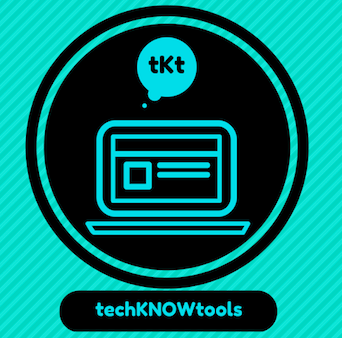My audio study notes for the Certified Professional in Learning & Performance (CPLP) exams as a podcast.

I am actively reviewing all things learning and performance to prepare for the first Certified Professional in Learning & Performance (CPLP) exams. The CPLP designation is highly sought after for those working in the talent development industry, specifically learning design, organizational change management, training development, and more. To help me review all the Areas of Expertise (AOE) and sub-topics in the Association for Talent Development Competency Model, I decided to create a new podcast that focuses on workplace learning and performance called the – Learn/Perform Mixtape.
LISTEN & SUBSCRIBE to the Learn/Perform Mixtape podcast: https://learnperform.transistor.fm/subscribe
For the 80+ hours of prep, I will be preparing for these exams “out loud” by writing study notes and audio commentary about what I’m reading and reviewing. Processing the concepts and concepts from the ATD Learning System: CPLP Edition + reviewing books and journals in my own library, notes, and experience as individual podcast episodes has been very helpful for me. For accountability and preparation for the CPLP Knowledge and Skills exams, this podcast is designed to map out the 99+ sub-sections of the 10 AOE and the Foundational Global Competencies. Also, it offers me another study tool to make these concepts and topics portable and accessible later — in both audio and written format.
Introduction to the Learn/Perform Mixtape Podcast
- Learn/Perform Mixtape: Podcast Trailer
- What is the CPLP: Certification Intro , Eligibility, & Why I’m Studying
- Study Resources: My Prep Guide the Review
- CPLP Knowledge Exam: Content Outline Overview of the Areas of Expertise (AOE)
- BONUS: Why Are You Studying for the CPLP?
AOE 1. Performance Improvement
- 1.1. Performance Improvement Process
- 1.2. Systems Thinking and Theory
- 1.3. Business, Performance, and Gap Analysis
- 1.4. Root Cause Analysis
- 1.5. Approaches for Selecting Improvement Solutions
- 1.6. Change Management Theory
- 1.7. Facilitation Methods
- 1.8. Project Management Tools & Techniques
- 1.9. Communication Techniques & Tools
- 1.10. Group Dynamic Processes
AOE 2. Instructional Design
- 2.1. Business Strategy and Drivers
- 2.2. Learning Theories
- 2.3. Individual Learning Preferences
- 2.4. Instructional Design Theories and Overview
- 2.5. Assessment Methods and Formats
- 2.6. Research Methods
- 2.7. Content Knowledge from SMEs
- 2.8. Design and Development Process
- 2.9. Instructional Methods
- 2.10. Delivery Options and Media
- 2.11. Learning Technologies
- 2.12. Individual and Organizational Influences on Learning & Change
- 2.13. Legal and Ethical Issues: Copyright & Fair Use in Learning Design
AOE 3. Training Delivery
- 3.1. Learning Theories
- 3.2. Individuals Learning Preferences
- 3.3. Instructional Methods
- 3.4. Ways to Facilitate Informal Learning & Build Learning Communities
- 3.5. Delivery Options and Media
- 3.6. Learning Technologies
- 3.7. Facilitation and Presentation Tools and Techniques
- 3.8. Organizational/Cultural Differences in Learning Preferences & Communication
- 3.9. Preparing for Delivery
- 3.10. Copyright and Fair Use Laws
AOE 4. Learning Technologies
- 4.1. Assessing Technology for Development
- 4.2. Delivery Options and Media
- 4.3. Social Learning Techniques and Technologies
- 4.4. Existing & Emerging Learning Technologies and Support Systems
- 4.5. Existing & Emerging Talent Management Software Solutions
- 4.6. Existing & Emerging Technologies that Enable Knowledge Management
AOE 5. Evaluating Learning Impact
- 5.1. Theories and Types of Evaluation
- 5.2. Statistical Theory and Methods
- 5.3. Research Design
- 5.4. Analysis Methods
- 5.5. Learning Analytics
- 5.6. Interpretation and Reporting of Data
AOE 6. Managing Learning Programs
- 6.1. Business Model, Drivers, and Competitive Position
- 6.2. Learning Technologies and Support Systems
- 6.3. Learning Information Systems
- 6.4. Marketplace Resources
- 6.5. Principles of Management and Leadership
- 6.6. Human Resources Systems
- 6.7. External Systems that Affect Organizational Performance
- 6.8. Legal, Regulatory, and Ethical Requirements
- 6.9. Understanding Program Administration
- 6.10. Budgeting, Accounting, and Financial Management
- 6.11. Project-Planning Tools and Processes
- 6.12. Communication and Influence
AOE 7. Integrated Talent Management
- 7.1. Key Components of Talent Management Systems
- 7.2. Workforce Planning and Talent Acquisition Approaches
- 7.3. Career Development Theories and Approaches
- 7.4. Individual and Organizational Assessment Tools
- 7.5. Talent Management Analytics
- 7.6. Talent Management Software Solutions
- 7.7. Maximizing Workplace Diversity
- 7.8. Ethical Standards and Legal Issues
AOE 8. Coaching
AOE 9. Knowledge Management
- 9.1. Knowledge Management: Concepts, Philosophy, and Theory
- 9.2. Knowledge Management Best Practices
- 9.3. Knowledge-Mapping Techniques
- 9.4. Technologies that Enable Informal Learning & Knowledge Sharing
- 9.5. Social Learning Techniques & Technologies
- 9.6. Understanding Business Processes that Support Knowledge Exchange
- 9.7. Business Process Analysis
- 9.8. Systems Analysis and Design
AOE 10. Change Management
- 10.1. Systems Thinking & Open Systems Theory
- 10.2. Chaos and Complexity Theories
- 10.3. Action Research
- 10.4. Appreciative Inquiry Theory
- 10.5. Organizational Systems, Culture, & Political Dynamics
- 10.6. Change Theory and Change Models
- 10.7. Process Thinking and Design
- 10.8. Communication Techniques and Tools
- 10.9. Engagement Practices to Build Critical Mass
- 10.10. Diversity and Inclusion
- 10.11. Motivation Theory
- 10.12. Mindset & Mental Models

You must be logged in to post a comment.